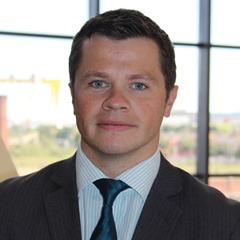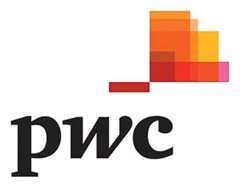Legal challenges cast dark clouds over holiday pay
 Craig Harrison explains some of the key consequences for over-time pay arising from the recent European Court of Justice and Employment Appeal Tribunal cases.
Craig Harrison explains some of the key consequences for over-time pay arising from the recent European Court of Justice and Employment Appeal Tribunal cases.
As Christmas creeps towards us, chief executives, union leaders and thousands of workers have at least one thought in common – holiday pay. But the outcome of two recent legal judgments will have a widespread impact on how many public and private sector organisations calculate it and wonder how much they might have underpaid in the past.
First came May’s European Court of Justice (ECJ) ruling that any worker whose pay is recognised either wholly or partly in commission will be entitled to have this reflected in their holiday pay. The Court’s decision in the Lock v British Gas case means that holiday pay could be increased to take account of commission that sales staff, for example, are entitled to earn.
In reaching its decision in Lock v British Gas, the ECJ relied on the holiday pay rules contained in the European Working Time Directive, transposed into UK law as the Working Time Regulations 1998. These say, in effect, that employees are entitled to “a week’s pay for a week’s statutory leave,” but in the case of Lock v British Gas, while the employee’s pay comprised about 60 per cent commission, he received only basic pay during holidays. Even where commission – and therefore pay – fluctuates from month to month, the ECJ decided it was permanent enough to be regarded as part of his monthly salary.
The ECJ has referred the Lock v British Gas case back to the Leicester tribunal office to decide if it can interpret UK legislation to comply with the ruling and possibly to decide on the appropriate reference period for re-calculating commission. That means there will be no certainty on backdated claims until the case is heard in February, so further clarification will be eagerly awaited by all parties.
Second came October’s landmark Employment Appeal Tribunal (EAT) ruling on Bear Scotland Ltd v Fulton and Baxter, Hertel (UK) Ltd v Wood and others, and Amec Group Ltd v Law and others, which potentially requires employers to include overtime when calculating holiday pay. Currently, only basic pay counts towards holiday pay, so this ruling means eligible workers can claim for additional holiday pay as well as lodging backdated claims, although the Government may seek to limit retrospective claims.
Whilst the EAT ruling is likely to be appealed (and may already have been appealed by the time you read this), it is nonetheless a potentially major issue for UK private and public sector undertakings, unions and employees alike. The eventual outcome could be a welcome remedy to unintended underpayments to employees, whilst on the other hand imposing potentially serious cost, liquidity and administrative burdens on companies paying for overtime.
That said, based on the initial judgment, the final outcome may not be as severe as some had feared and businesses could see the extent of backdated claims being substantially reduced or even ruled out if there is a gap of three months since the last incorrect payment.
Impact
Nevertheless, the business community should not underestimate the impact of this ruling as employees and their trades unions are understandably going to reclaim any monies due, especially as there has been little, if any, real increase in earnings in recent years. And while the ECJ judgment will impact primarily on the private sector, the potential of the EAT ruling will punish private and public sector organisations alike.
 If the EAT ruling is upheld, any public sector organisation in Northern Ireland where overtime is a normal element of the employees’ working pattern, could face substantial claims and, even if the retrospective element was time-limited, this could conceivably amount to millions for larger organisations. The key risks include:
If the EAT ruling is upheld, any public sector organisation in Northern Ireland where overtime is a normal element of the employees’ working pattern, could face substantial claims and, even if the retrospective element was time-limited, this could conceivably amount to millions for larger organisations. The key risks include:
• potential financial liabilities – where employees will be able to claim for “unlawful deductions of wages” and, if the “unlawful” deductions have been made within three months of each other, claims can go back to the employee’s start date, 1 October 1998 (when the Regulation came into force), or another retrospective time-limited date the Government may impose;
• difficult relations with unions – where a number of the cases have been backed by unions and where unions will understandably be robust in supporting members in making claims; and
• operational complexities – with respect to how best to reward workers, organise shifts and working patterns and ensure that payroll performance remains efficient under any new reward regimes.
In order to fully understand the extent of the ECJ and EAT decisions, public and private sector organisations need to act quickly and plan how to protect themselves against any potential claims. This should involve a three-step action plan. First, businesses need to determine if they are at risk. Second, they then need to establish the amounts involved and whether it is mainly an historic issue or an ongoing potential cost to the business. Finally, businesses should review their existing policies and procedures to safeguard their position in the future as well as look to take action to mitigate the costs of this ruling in the future.
And when it comes to reviewing policies, employers should consider the current basis of calculating holiday pay. If the calculations are based on minimum base pay only, how many workers may be in scope to have changes made to have other elements of their pay included? Then there are payroll systems and whether existing payroll systems can be changed to reflect more tailored holiday pay calculations for workers on different work and pay patterns.
Public and private sector employers should not underestimate the significance and impact of the ECJ judgment and the EAT ruling. Singly or collectively, they will force many companies and undertakings to completely review their existing work and pay patterns and change forever the manner in which overtime is paid in the UK.
Craig Harrison is a tax and reward expert with PwC in Northern Ireland and can be contacted on 028 9041 5022 or by email at craig.d.harrison@uk.pwc.com






